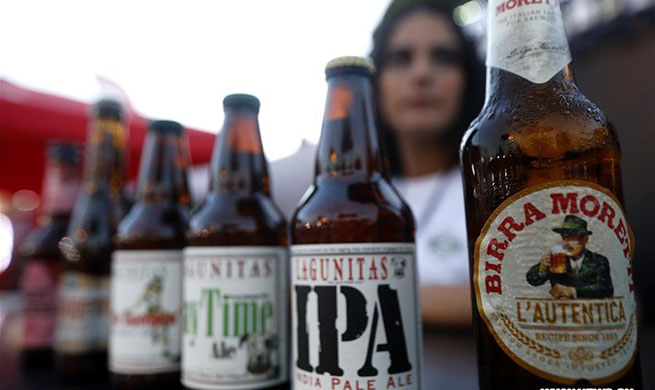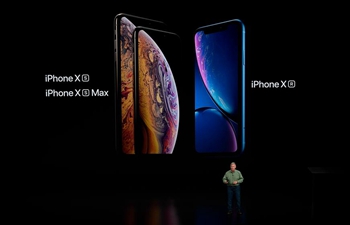NEW DELHI, Sept. 15 (Xinhua) -- Indian universities are all going for healthy eating.
The country's varsity regulator, the University Grants Commission (UGC), has recently asked all its affiliated universities and colleges to promote healthy eating among students by banning the sale of junk food on campuses.
"Banning junk food in colleges will set new standard for healthy food, make the students live better, learn better and reduce obesity levels. This will prevent lifestyle diseases which have a direct link with excessive weight," the UGC said in a circular issued a fortnight back.
Health experts and students have largely welcomed the move.
"Over the past few years, health of students has become an active discourse in education and educational institutes. Earlier, health awareness was restricted to apprise students of drug abuse in colleges. However, benefits of nutritional food and even monitoring their eating habits are being actively adopted by educational bodies," said Kavita Suri, a nutritionist.
It was the World Health Organization (WHO) that had first raised the issue of health of school students. This not only included giving students a healthy environment to learn, but also develop health programs where students were made active participants in leaning about nutrition and promoting it among school staff and their own families.
According to nutritionists, junk food and foods with high sugar content deplete energy levels and the ability to concentrate for extended periods of time.
Suri pointed out to a grave side-effect of regular consumption of junk food -- stress and depression. "When you eat a lot of sugar, you get a certain high that lasts for some time only. After that, it makes you anxious and depressed. Young children are really not able to understand why this happens to them. I am very happy that finally the university authorities are taking some concrete steps," she said.
Students also appeared to support the UGC in its quest to make campuses healthy. "I think it is good to remove cola drinks and chips from campuses. These are quick grabs for us when we are studying or are in a hurry for a class. But everyone knows these are extremely unhealthy. So when they will not be easily available, one would automatically not buy them," said Gaurav Aggarwal, a Delhi University student.
But not all are happy with the directive and defiance is visible. "Food is a matter of choice. What may be of my liking will be unhealthy for someone else. It is alright to have schools ban such food but once in university, we are adults and can act responsibly towards food choices. I do not want to be restricted at least in my college about what I want to eat," said Vidhya Kapoor, another student of Delhi University.
She points out that though junk food -- samosa and vada pav (two popular Indian food) are the best that students can afford. How can they ban these in colleges? I think the directive will eventually be ignored and campuses will continue to sell these products," added Kapoor.
While it is a novel idea to raise awareness against junk food, educational institutions may have to fight a long battle. Cleaning campuses of such food does not mean they are not available outside of them, especially for college-goers for whom hanging out is equivalent to education.
The growing fast food industry and innovation in food and restaurants means that UGC might be doing its bit, it will take a long time for students to fall in line.













